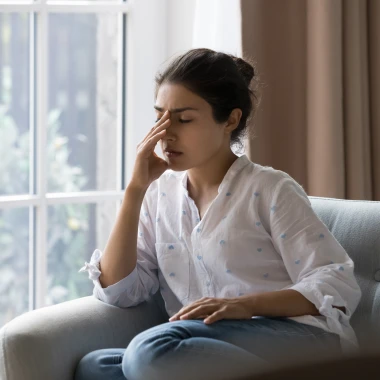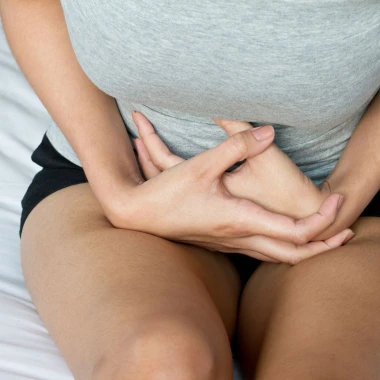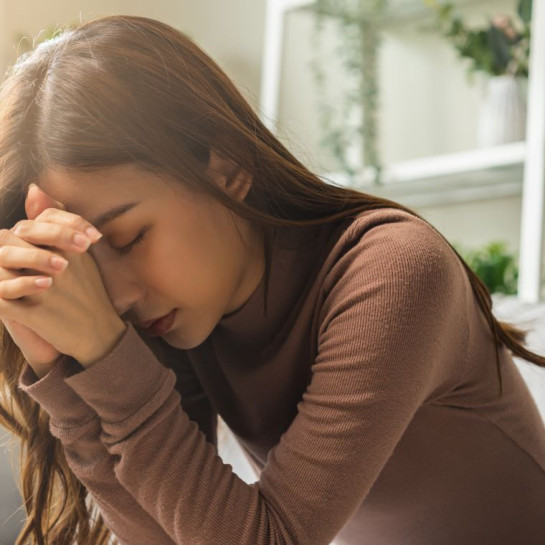Category: Essentials
-

Managing menstrual migraines
Managing menstrual migraines There are several ways to manage menstrual migraines as they happen. Triptans Non-hormonal drugs and are the first-line treatment for cluster headaches or migraines once they have developed. They work by binding to serotonin receptors in the brain, narrowing blood vessels and reducing the release of inflammatory molecules in the blood that…
-

What causes menstrual migraines during your period?
What causes menstrual migraines during your period? Understanding Menstrual Migraines Have you ever experienced migraines during your period? Migraines are a complex neurological condition with a variety of symptoms, typically involving moderate to severe headaches. They are highly disabling, difficult to treat, and strongly affect quality of life. Women are 2-3 times more likely to suffer from…
-

What causes infertility with endometriosis?
What causes infertility with endometriosis? Medically reviewed by Dr. Karen Amaniampong Endometriosis is a chronic inflammatory disease where endometrium-like tissue is found outside of the uterus (womb). It is mostly found in women of reproductive age although the clinical consequences of endometriosis and its management can last well into post-menopause. Endometriosis most commonly involves your ovaries,…
-

Dealing with endometriosis flare ups
Dealing with endometriosis flare ups Living with endometriosis is a daily battle for many women as it comes with many challenges and complications in their day-to-day lives. Among these challenges, endometriosis flare-ups can be particularly debilitating. What is an endometriosis flare-up? A flare-up, also known as an endometriosis attack, occurs when you go through a…
-

Endometriosis symptoms
Endometriosis symptoms Medically reviewed by Andrew Horne, Professor of Gynaecology and Reproductive Sciences at Edinburgh University’s MRC Centre for Reproductive Health. Endometriosis is a chronic condition that can drastically affect people by impacting not only their menstrual cycle, but also their everyday lives. Due to the stigma around periods, it can be a difficult topic to understand…
-

Diagnosing endometriosis
Diagnosing endometriosis Medically reviewed by Andrew Horne, Professor of Gynaecology and Reproductive Sciences at Edinburgh University’s MRC Centre for Reproductive Health. Getting diagnosed There are two ways to diagnose endometriosis: a suspected (clinical) diagnosis, which is based off symptoms or imaging tests, and a surgical diagnosis, which is the definitive way to confirm endometriosis. This is done through laparoscopy, also known…
-

What is endometriosis?
What is endometriosis? Medically reviewed by Andrew Horne, Professor of Gynaecology and Reproductive Sciences at Edinburgh University’s MRC Centre for Reproductive Health. Endometriosis is a chronic condition that is characterized by tissue similar to that found in the uterus, growing in other parts of the body. This tissue is found in organs and on other structures, most…
-

UK healthcare guidelines for endometriosis
UK healthcare guidelines for endometriosis What are the NICE guidelines and how do they affect you? NICE (National Institute for Health and Care Excellence) is an independent body that is part of the NHS. They provide recommendations and health standards based on evidence, to create guidelines for healthcare in the United Kingdom, which covers England,…
-

Adenomyosis: causes, symptoms, diagnosis, and treatment
Adenomyosis: causes, symptoms, diagnosis, and treatment Medically reviewed by Andrew Horne, Professor of Gynaecology and Reproductive Sciences at Edinburgh University’s MRC Centre for Reproductive Health. What is adenomyosis? Adenomyosis occurs when tissue similar to the endometrium is found in the muscle of the wall of the uterus. Adenomyosis is a menstrual health condition that is distinct from…
-

Endometriosis treatment
Endometriosis treatment Medically reviewed by Andrew Horne, Professor of Gynaecology and Reproductive Sciences at Edinburgh University’s MRC Centre for Reproductive Health. What therapies exist for endometriosis? Sadly, there is no cure for endometriosis. The therapies that currently exist are used to relieve or alleviate symptoms, and if the therapy is stopped, the symptoms usually return. Your doctor…